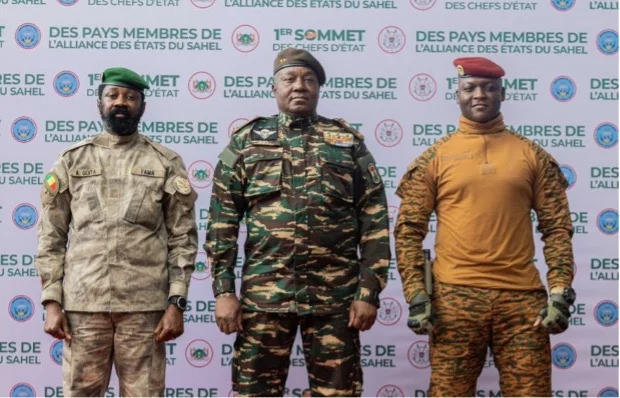AES: Towards a common parliamentary diplomacy?

A call for deeper parliamentary integration echoed across Niamey on Saturday, June 28, as General Malick Diaw, President of Mali’s National Transitional Council (NTC), addressed leaders and delegates during the official installation of Niger’s Consultative Council for Refoundation (CCR).
Hailing the event as “a strong signal” in the march toward Sahelian sovereignty, Diaw emphasized the urgent need to formalize a common legislative front for the Alliance of Sahel States (AES).
The ceremony in Niger’s capital brought together authorities from Niger, Mali, and Burkina Faso — the three founding members of the Confederation of Sahel States, created in July 2024.
International observers and dignitaries also attended the event, which underscored a growing determination among Sahel nations to build self-sustaining institutions free from foreign influence.
“In our quest for sovereignty, the establishment of the Consultative Council for Refoundation is a strong signal,” Diaw told the audience.
“It reflects the full and total support of the Nigerien people for the ideals of the Refoundation, so dear to the President of the Republic of Niger.”
Acknowledging the region’s decade-long security crisis, Diaw denounced what he described as interference by “imperialist sponsors.”
He praised the formation of the AES as “a historic diplomatic act, marking a decisive turning point for security, peace, and development in the Sahel.”
In his address, the Malian official urged member states to build on this momentum by creating a formal interparliamentary committee.
“We must now focus on parliamentary diplomacy in our region by creating an interparliamentary committee of AES states, with a view to consolidating legal and institutional achievements,” he stated.
General Diaw positioned this potential legislative integration as essential to amplifying the will of Sahelian citizens.
“This transitional branch represents the will of the people. It crystallizes their interests. The AES and the parliamentary councils are closely linked. If they didn’t exist, they would have had to be invented,” he said.
Closing his remarks, Diaw commended the leadership of the AES heads of state, affirming the region’s shared ambition.
“I am pleased, once again, to salute the leadership of our three presidents,” he declared. “The people of the Sahel express their satisfaction for all the initiatives aimed at making the Confederation a reality and an entity that must now be reckoned with.”
About The Author
dailymailafric
I am an avid African news observer, and an active member of Daily Mail Africa.
I’m Passionate about staying informed on diverse topics across the continent,
I actively contribute to publishing on political, economic and cultural developments in Africa.



